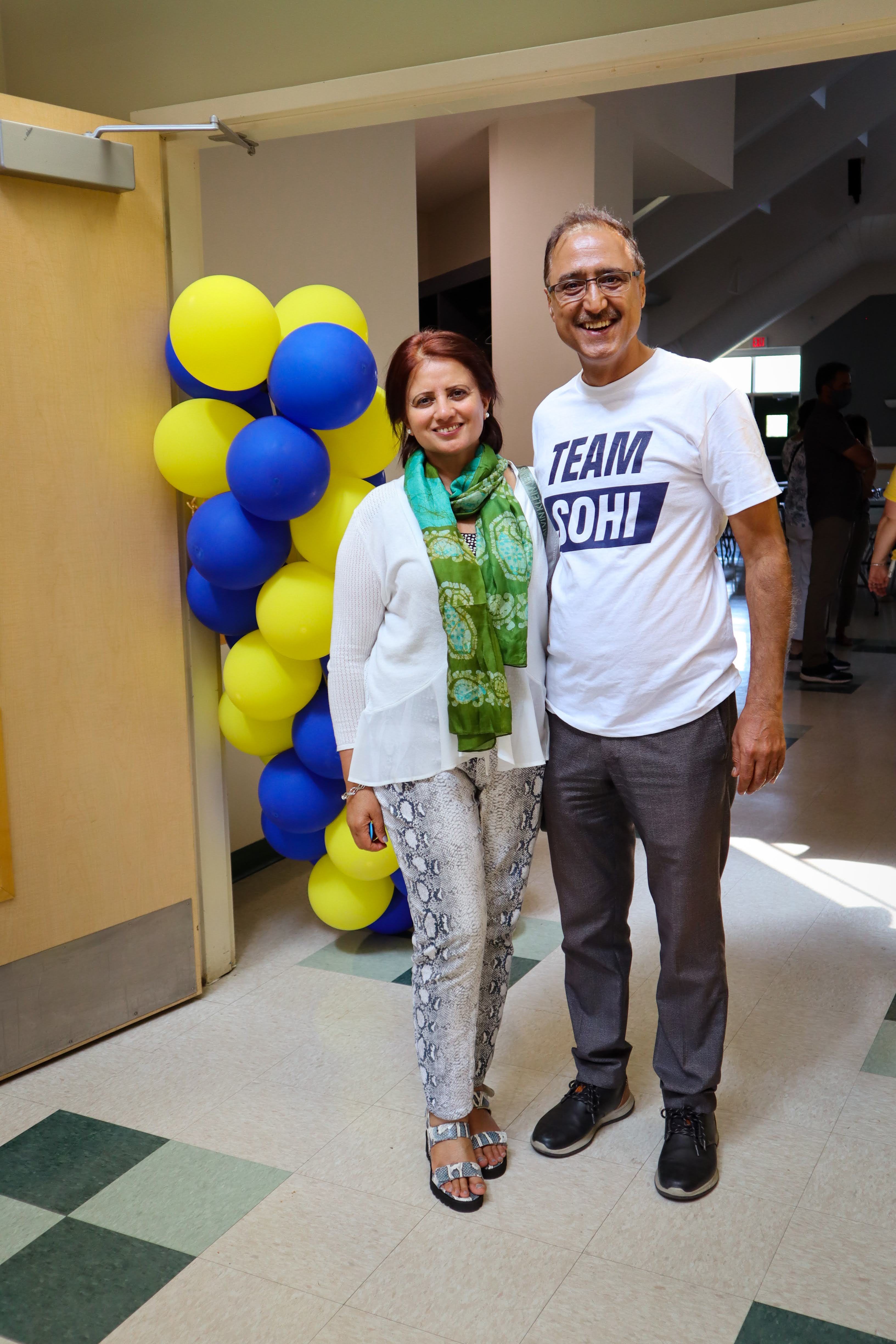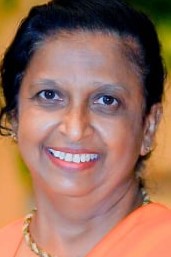Like all new immigrants and refugees, Amarjeet Sohi experienced challenges and anxieties about his new life in Canada. Yet, he went on to be a Union Representative, City Councillor, Minister of Infrastructure and Communities in Prime Minister Justin Trudeau’s first cabinet and was later the Minister of Natural Resources. Sohi became the Mayor of Edmonton in the October 2021 poll. In his Canadian journey, Sohi has worked as a taxi and bus driver and has also been an actor with a Punjabi Literary Group.
When Sohi arrived in Canada in 1981, he was just 17 years old and hardly knew any English. Hailing from a farming community in the Punjab, India, Sohi who arrived in Edmonton, Alberta was sponsored by his brother.
Immigrant Muse reached out to Sohi in Edmonton for a brief chat about his life in Canada.

Sohi Amarjeet with his wife at a community BBQ in Edmonton
IMM: What was it like when you first arrived in Canada, what challenges did you face and how did you overcome them?
Amarjeet Sohi: I faced the same challenges that all newcomers deal with. Initially, it was hard, trying to find work and make ends meet. I was lucky I did not have to worry about accommodation because I stayed with my brother. Both he and my sister-in-law-guided me. But it was a hard time. I had to go to school during the day. A cousin of mine had also arrived at the same time that I did, and we had to wake up early for our cleaning job at McDonald’s, before heading off to school. We did a deep cleaning of the kitchen at McDonald’s, not bussing tables. We also delivered newspapers.
Assimilating was also a huge concern; I tried hard to understand Canadian culture and the way of life.
My brother enrolled me in English as a Second Language (ESL) classes, and I spent a year learning English before going to high school.
I am thankful for the many public services available, without which it would have been so difficult to understand the way of life here and to assimilate. The libraries, public transport, and recreation centres – they were easily accessible and affordable, those were critical. I made many friends and learnt about Canada at the recreation centres.
I was a member of the Punjabi Theatre Group. I believe my strong commitment to volunteering also helped. It was here that I learnt about networking and formed strong relationships. Being a bus driver, I was sort of a public figure, getting to know commuters as they got to know me.
I drove taxies and later joined Edmonton Transit as a driver.
IMM: You won some rights for staff members of Edmonton Transit Service (ETS). What was that about?
AS: I joined ETS as a driver for their Disabled Adults Transit Service (DATS). Most of the drivers were immigrants. The work conditions were really bad, we had to work six days a week without benefits like sick leave. So, we decided to appeal and everyone looked up to me to organise things. That took three years. When we were unable to make any headway with our appeals, we took the City to court. And we won.
We negotiated our first Collective Agreement, which took about a year and a half. It was during that time that I interacted a lot with the officers working for the Municipality, and understood how it works.
IMM: You have received several awards for the work you have done, how do you feel about these awards?
AS: That’s right I have been recognised for my work on gender issues, multiculturalism, and anti-racism. I feel both honoured and humbled by the awards.
Sohi has received the Edmonton Interfaith Advocate Award, the John Humphrey Centre’s Human Rights Advocate award in recognition of his work on inclusive communities. His work to end gender discrimination and violence earned him the Man of Honour award from the Centre to End All Sexual Exploitation in 2015 and also the Recognising Immigrant Success in Edmonton (RISE) Lifetime Achievement award hosted by the Edmonton Mennonite Centre for Newcomers.
IMM: You’ve been a Minister in the Federal government. Why did you get into Federal politics and how was that experience?
AS: I decided to run for a federal seat because I felt local issues were not getting a proper hearing in Ottawa. Edmonton needed support for infrastructure and also the LRT project. I enjoyed the work and handled two portfolios during that time. I was able to achieve much in terms of my work as a Minister, but party-based politics was not something I enjoyed.
IMM: As Mayor, what are your plans to keep Edmontonians from migrating, and attracting others to make Edmonton their home?
AS: The state of the economy is on everybody’s mind and I have plans to address all that in my first hundred days in office as Mayor. My policy is ‘leave no one behind.’
IMM: What is your message to newcomers and refugees to Canada?
AS: Canada is a wonderful place to build your life. Get involved in the community, work hard and live up to your potential. At the same time, try to understand and relate to our Indigenous population. They were marginalised and that has taken away their dignity. Refugees, in particular, can relate to that shared trauma. Empathy can help us build a stronger community; figure out how to reconcile with the past, so we can all live in harmony and support each other.
Updated: November 26, 2021 to show tat Sohi won the October 2021 poll to become the Mayor of Edmonton.

